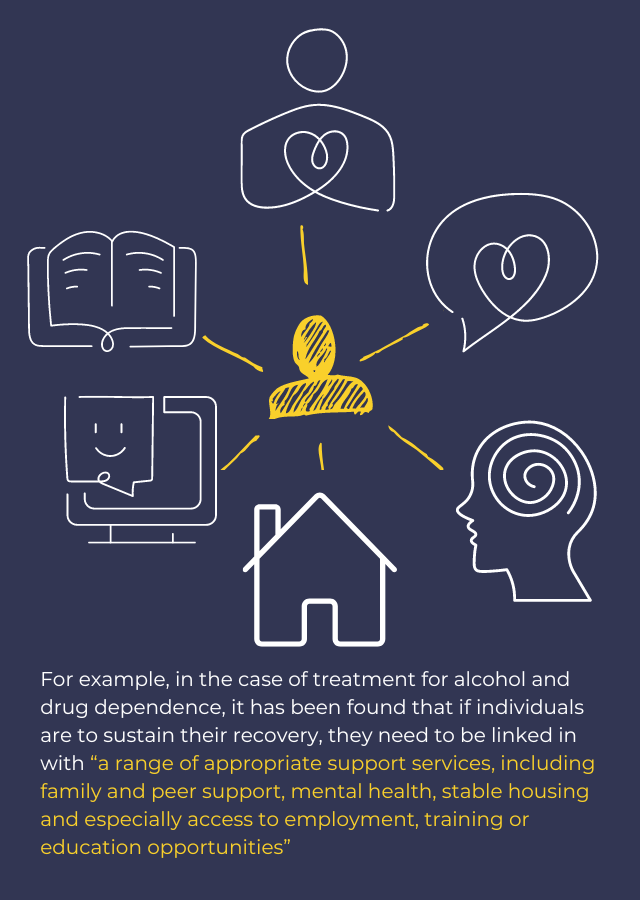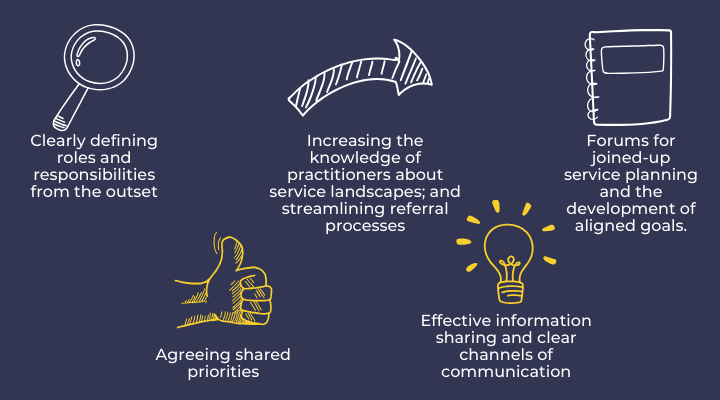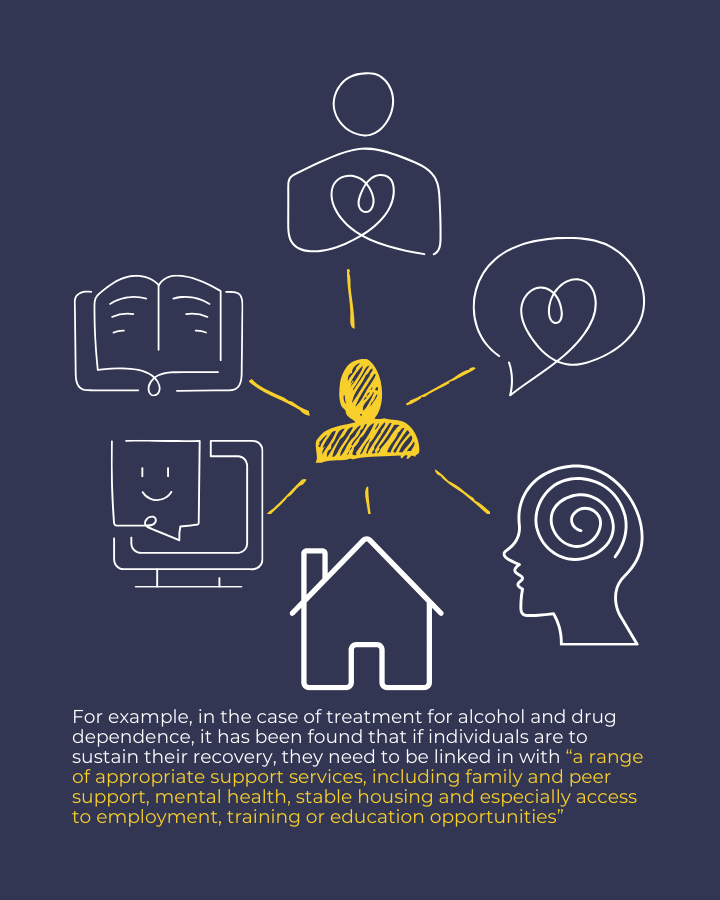

Person-centred approaches are those which allow for the personalisation of support and services around individual needs. In other words, being person-centred is about “focusing care on the needs of the person rather than the needs of the service”.
This personalisation works most effectively when various services are flexible and work together through a whole systems approach to assess and respond to the holistic needs of the individual. This requires effective partnership working and collaboration. There are many challenges to partnership working including differences in priorities, lack of management buy-in, poor communication and funding issues however effective multifaceted outcome focused approaches can be successfully achieved through:




For example, in the case of treatment for alcohol and drug dependence, it has been found that if individuals are to sustain their recovery, they need to be linked in with “a range of appropriate support services, including family and peer support, mental health, stable housing and especially access to employment, training or education opportunities”.
When designing and commissioning alcohol and drug preventative interventions, a level of flexibility is essential to allow for the tailoring of policy and programmes to the unique circumstances of the individual.
The Scottish Government recently committed to driving forward a whole systems approach through their public health reform programme, with the publication of the National Public Health Priorities. These aim to make the best use of collective resources, encouraging ownership from the ‘whole system’ of public services to improve the public’s health and reduce health inequalities.